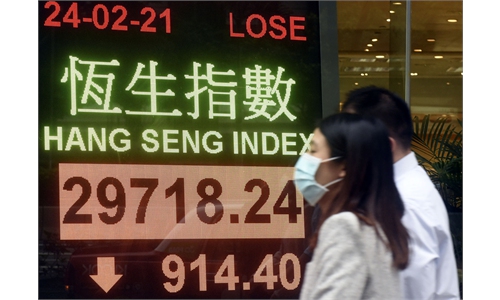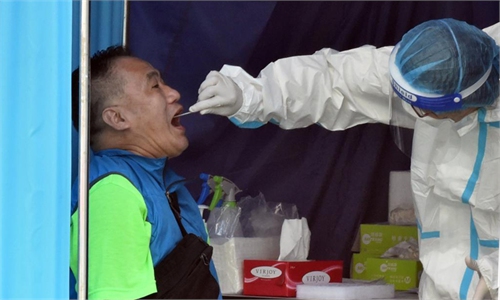Hong Kong's economic growth expected to rebound in Q2 following dynamic zero-COVID policy: senior official

A view of Hong Kong Photo: VCG
The local economy of the Hong Kong Special Administrative Region (HKSAR) is expected to rebound as the latest wave of COVID-19 outbreaks are being gradually controlled, while economic growth in Q2 may shift from the rapid negative growth from Q1 following the dynamic zero-COVID policy, Hong Kong Financial Secretary Paul Chan Mo-po said on Sunday.
Chan noted in a post that the business operating environment in the HKSAR may expect a better performance in Q2 as the city has been recovering from recent outbreaks, which will benefit the economic development and spark a turnaround from negative growth in the first quarter as Hong Kong continues with a dynamic zero-COVID policy.
The HKSAR has been battling against a wide spread of Omicron outbreaks since February. The Hong Kong economy is forecast to grow by 2 percent to 3.5 percent in 2022 with supportive measures implemented by the government, while the pandemic remains a source of uncertainty, according to the official website of the HKSAR government.
Chan stressed that Hong Kong's financial market remains resilient to potential market shocks triggered by external factors. The capital adequacy ratio of banks in the city averages 20 percent, which is far above the international minimum standard of 8 percent. The average liquidity coverage ratio remains 150 percent, 50 percent higher than the minimum requirement of 100 percent.
According to Chan, Hong Kong has been facing a complicated and fast-changing external environment, caused by massive debt and relaxed monetary policies implemented by some countries which increased the vulnerability and volatility of the financial market, and the COVID-19 epidemic has caused structural changes of the global supply chain and logistics. However, Hong Kong has reinforced security in many aspects to resist market volatility, Chan noted.



